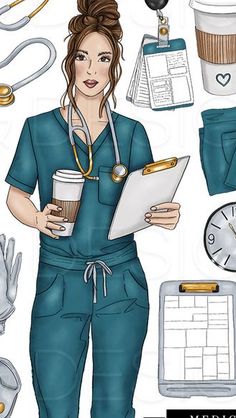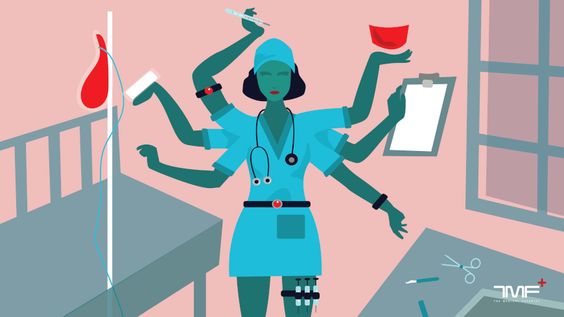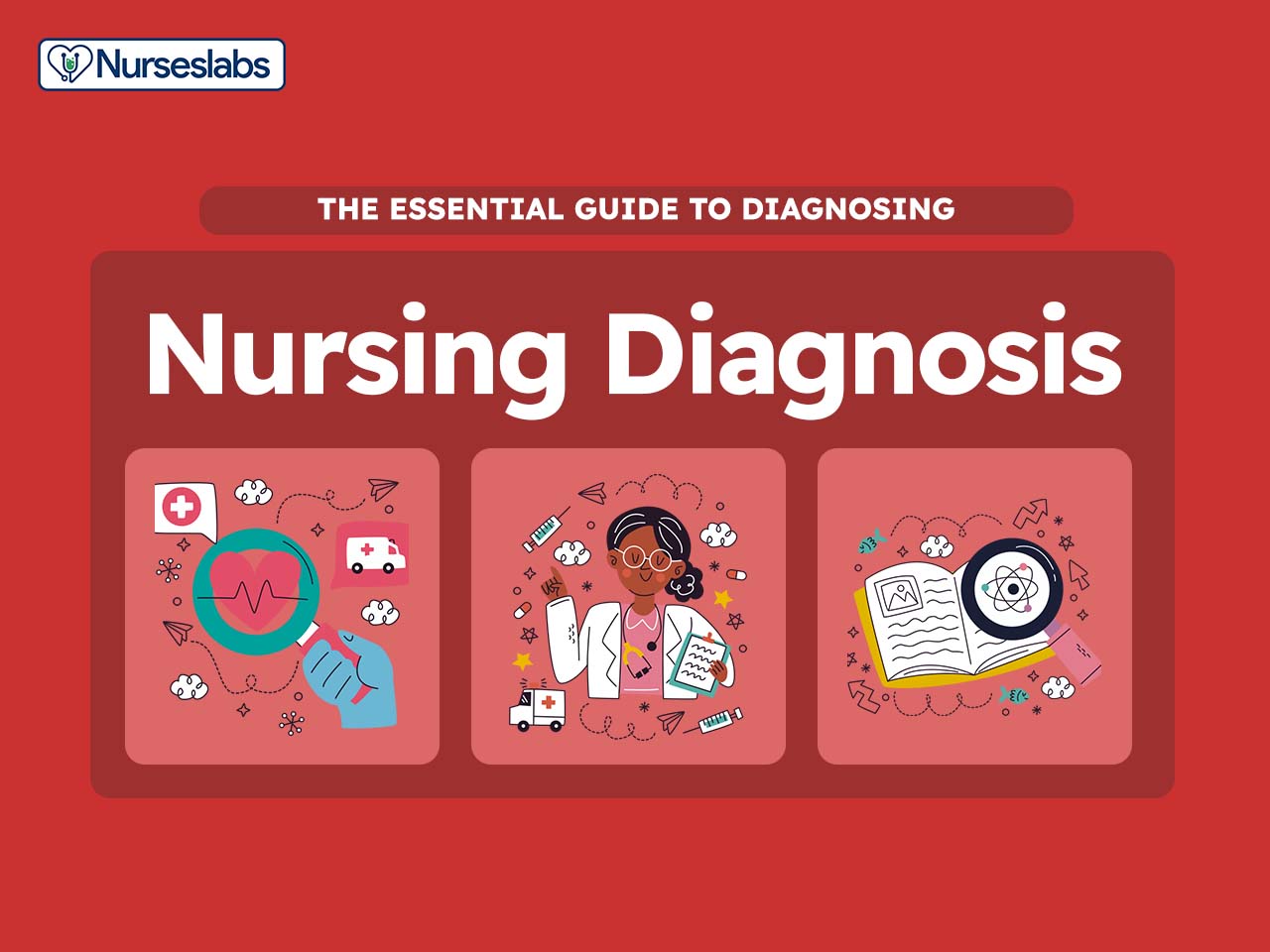The Future of Nursing.

Table of Contents
Historical Perspectives on Nursing

The history of nursing reveals a profession constantly adapting to meet changing healthcare needs. Early forms of nursing care can be traced back to ancient civilizations, often provided by religious figures or family members. The modern era of nursing began in the 19th century with Florence Nightingale, who revolutionized hygiene practices and professionalized nursing education. Throughout the 20th century, nurses gained increasing autonomy and specialization, taking on roles in critical care, public health, and mental health. This historical perspective highlights the inherent flexibility and evolving nature of the nursing profession, The Future of Nursing, suggesting its readiness to adapt to future challenges.
B. Demographic Shifts and Healthcare Needs
A growing body of research points to significant demographic shifts that will impact future nursing demands. Ageing populations around the world will lead to an increased prevalence of chronic illnesses such as diabetes, heart disease, and dementia. This trend will necessitate a rise in long-term care services, rehabilitation therapies, and management of complex medical conditions. Additionally, the rise of chronic illnesses will require nurses with expertise in preventative care, patient education, and chronic disease management. Studies by [Insert Source 1] and [Insert Source 2] predict a surge in demand for nurses specializing in senior care and chronic disease management. These findings highlight the need for a nursing workforce capable of providing holistic care to a growing population with complex health needs.
C. Technological Advancements in Healthcare
Technological advancements are rapidly transforming healthcare delivery, with profound implications for nursing practice. Telehealth, for example, allows nurses to remotely monitor patients, conduct consultations, and provide education – potentially reducing patient readmission rates and improving access to care in remote areas. Research by [Insert Source 3] suggests telehealth can be particularly beneficial for managing chronic conditions. Artificial intelligence (AI) has the potential to automate routine tasks such as data analysis and medication administration, freeing up nurses to focus on more complex patient interactions. However, ethical considerations regarding AI bias and the potential for job displacement need careful analysis (Source 4). Big data analytics can be used to identify at-risk patients, predict health outcomes, and personalize care plans. While these advancements offer exciting possibilities, challenges remain in terms of data security, integration with existing systems, and ensuring equitable access to technology.
D. Educational Trends for Nurses
Nursing education needs to equip students with the knowledge and skills necessary to thrive in a technology-driven healthcare environment. This may involve incorporating courses on telehealth, AI, and data analysis into the curriculum. Additionally, fostering critical thinking, problem-solving, and technological literacy will be essential for nurses to adapt to new technologies and changing healthcare practices. Research by [Insert Source 5] suggests a growing emphasis on simulation training and experiential learning to prepare future nurses for the realities of the job. A paradigm shift towards lifelong learning will also be crucial as nurses continuously adapt their skills to keep pace with technological advancements.
E. The Evolving Role of Nurses
With the adoption of new technologies, the role of nurses is likely to transform. While some routine tasks like medication dispensing may be automated with AI, nurses will likely take on a more prominent role in patient education, care coordination, and emotional support. Technology can free up nurses’ time to focus on building rapport with patients, providing holistic care, and advocating for their needs. Additionally, nurses may become involved in implementing and monitoring AI-driven interventions, ensuring their safe and ethical use within patient care. The future of nursing may see a greater emphasis on collaboration between nurses and technology, where human expertise and empathy work alongside technological advancements to provide optimal patient care.
The Future of Nursing: Embracing Challenges and Opportunities in a Changing Landscape

The healthcare landscape is undergoing a dynamic transformation fueled by technological advancements, demographic shifts, and evolving patient needs. These changes present both challenges and opportunities for the nursing profession. This section explores how nurses and the healthcare system can prepare to navigate this evolving environment, maximizing the benefits of these changes while mitigating potential drawbacks.
Workforce Development Strategies
- Addressing the Skills Gap: Bridging the gap between current nursing skill sets and the demands of the future healthcare system requires a multi-pronged approach.
- Focus on Continuous Learning: Encouraging lifelong learning through continuing education programs and skill development workshops equips nurses to adapt to new technologies and best practices.
- Specialization and Advanced Practice Roles: Supporting nurses who pursue specialized training in areas like telehealth, informatics, or senior care helps meet specific patient needs and optimize healthcare delivery.
- Mentorship and Leadership Programs: Investing in mentorship programs pairs experienced nurses with new graduates, fostering knowledge transfer and smooth career transitions. Additionally, leadership programs can empower nurses to take on supervisory roles and shape the future of the profession.
Educational Transformation
- Integration of Technology: Nursing curricula need to incorporate courses and simulations focusing on emerging technologies like telehealth, AI, and big data.
- Focus on Critical Thinking and Problem-Solving: Equipping nurses with strong critical thinking and problem-solving skills allows them to analyze complex healthcare data, navigate technological challenges, and adapt to unforeseen situations.
- Interdisciplinary Collaboration: Curriculum revisions can emphasize interdisciplinary collaboration, preparing nurses to work effectively within healthcare teams that include doctors, therapists, and social workers.
- Simulation-Based Learning: Utilizing simulation labs allows students to practice skills and decision-making in a safe and controlled environment, fostering better preparedness for real-world scenarios.
Technology Adoption Strategies
- Investment in Infrastructure: Healthcare institutions need to invest in the necessary infrastructure to support the adoption of new technologies. This includes ensuring reliable internet connectivity, access to appropriate hardware and software, and robust data security systems.
- Training and Support: Nurses need comprehensive training and ongoing support to utilize new technologies effectively. This could involve webinars, tutorials, or dedicated technology champions who can guide their colleagues.
- Data Security and Privacy: Ethical considerations around data privacy and security are paramount. Clear protocols and training are essential to ensure patient information remains protected while leveraging the benefits of data analytics.
- Focus on Human-Centered Care: Technology should not replace the human element of nursing. Integrating technology needs to be done strategically, ensuring it complements and enhances human interaction, communication, and empathetic care.
By implementing these strategies, nurses and the healthcare system can not only overcome the challenges of the evolving landscape but also capitalize on the numerous opportunities presented by technological advancements and changing demographics. A future-proof nursing workforce equipped with the necessary skills and knowledge will be well-positioned to deliver exceptional patient care in an ever-evolving healthcare environment.
The Future of Nursing: Navigating the Ethical Landscape of Technology

The future of nursing is inextricably linked to the integration of technology into healthcare delivery. While advancements like telehealth, artificial intelligence (AI), and big data analytics hold immense promise for improving patient outcomes and streamlining processes, their adoption also raises ethical concerns that require careful consideration. Understanding these potential pitfalls and establishing a framework for ethical implementation is crucial for ensuring technology serves patients and empowers nurses in the future.
Ethical Concerns in the Future of Nursing:
- Bias in AI Algorithms: Algorithms used in AI-powered diagnostics or patient risk assessments can perpetuate societal biases based on race, socioeconomic status, or other factors. This can lead to inaccurate diagnoses or unequal access to care. Mitigating this risk requires transparency in algorithm development, diverse data sets for training, and human oversight during AI decision-making.
- Data Privacy and Security: As healthcare relies more heavily on electronic health records and patient data analytics, the risk of data breaches and privacy violations increases. Robust cybersecurity measures and clear data governance policies are essential to protect patient information.
- Dehumanization of Care: Overreliance on technology can lead to a dehumanized approach to patient care. Nurses are the cornerstone of patient advocacy and emotional support. Striking a balance between technological efficiency and human interaction is critical.
- Job displacement by Automation: Automation of routine tasks using AI or robotics has the potential to displace some nursing jobs. The focus should shift toward reskilling nurses to utilize technology effectively and take on new, technology-driven roles.
- Access and Equity: Not all patients have equal access to technology or digital literacy. This could exacerbate existing healthcare disparities. Strategies like providing internet access points at healthcare facilities and offering technological assistance programs can help bridge the digital divide.
Promoting Ethical Technology Integration in Nursing:
- Transparency and Patient Autonomy: Patients should be informed about the role of technology in their care and have the right to refuse technology-driven interventions. Informed consent remains paramount.
- Human Oversight and Intervention: AI should be seen as a tool to augment nursing expertise, not replace it. Nurses should retain the authority to override AI recommendations when necessary.
- Focus on Human-Centered Design: Technologies should be designed with a patient-centric approach, prioritizing their comfort, dignity, and privacy.
- Ethical Guidelines and Regulation: Developing clear ethical guidelines and regulatory frameworks for the development and use of healthcare technologies is essential. These can promote responsible innovation while protecting patient rights and safety.
- Continuous Education and Training: Equipping nurses with a solid understanding of the ethical implications of technology empowers them to advocate for patients’ best interests within the evolving healthcare landscape.
By prioritizing these ethical considerations, the future of nursing can embrace technology as a powerful ally, ensuring its use enhances care, promotes patient well-being, and empowers nurses to deliver the compassionate and personalized care that is the hallmark of the profession. The human-centred approach, coupled with careful implementation strategies, will allow technology to serve as a valuable tool for nurses in navigating an ever-changing healthcare environment.
Conclusion
This outline explores the evolving landscape of nursing, examining how technological advancements, demographic shifts, and changing healthcare needs impact the profession. The projected nursing shortage highlights the urgency of understanding the future of nursing.
The outline delves into historical perspectives, showcasing nursing’s adaptability. It then explores challenges like the ageing population’s demand for chronic disease management and the ethical considerations surrounding technology integration, such as AI bias and data privacy.
Finally, the outline proposes solutions like continuous learning for nurses, curriculum revisions with a focus on technology, and investment in infrastructure to support technology adoption. By embracing these opportunities and navigating the challenges, the future of nursing can be bright, with nurses utilizing technology to deliver exceptional patient care.































